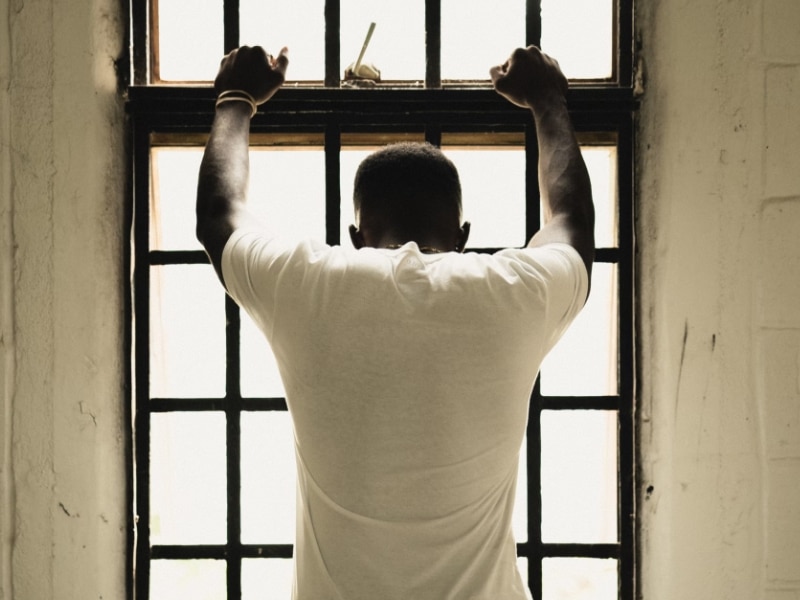Dealing with disappointment can be overwhelming and disheartening, but it doesn’t have to fester and take over your life. Learning to deal with disappointment is an important skill that will help you maintain a positive mindset.
When you experience disappointment, you are at a greater risk of physical and/or emotional difficulties. Dealing with disappointment in a healthy way is integral to maintaining your well-being.
In this article, I will help you understand what disappointment is, the importance of being able to effectively cope with it, and some helpful tips to deal with disappointment.
Contents
Understanding disappointment
Disappointment is a complicated emotion that occurs when our expectations fall short of the desired outcome. When you experience disappointment you may have feelings of sadness, loss, anger, and frustration.
Sometimes disappointment happens when we set unrealistic expectations, while other times it may be completely out of our control. Disappointments can vary in degree, from minor frustrations to major life-changing events.
Perhaps your significant other canceled a date night that you were really looking forward to. Or you were turned down for a promotion at work. Maybe you planned a fun trip with friends but got sick and had to sit out.
Disappointments hurt, regardless of how minor or serious the circumstances are.
The importance of effectively dealing with disappointment
If you don’t effectively deal with disappointment, experts say you are at a greater risk of physical and emotional difficulties.
Headaches, gastrointestinal difficulties, and over-perspiration are all physical health symptoms that may occur if you do not deal with disappointment in a healthy manner. Symptoms of stress, anxiety and depression are also common emotional difficulties associated with prolonged disappointment.
Sometimes when we are faced with disappointment, our instinct may be to repress our emotions. It may feel easier to run away from your emotions and try to move on without really processing them.
This response comes with its own risks. Studies show that individuals who repress their emotions are more likely to experience negative physical, mental health, and general well-being issues. For example, research by Pennebaker (1997) found that people who repress their emotions also suppress their body’s immunity, making them more vulnerable to a variety of illnesses.
Another study found that not acknowledging difficult emotions actually makes those emotions stronger. Though you may feel like running away from disappointment is a good idea at the time, it will simply worsen the negative emotions in the long run.
Effectively dealing with disappointment is an incredibly important skill, as the physical and mental health consequences of failing to do so can be severe.
5 tips for dealing with disappointment
It’s normal to struggle with and feel overwhelmed by disappointment. However, it is possible to work through your feelings and maintain a positive mind frame. Here’s how.
1. Re-evaluate your expectations
Expectations play a significant role when disappointment happens. When things don’t turn out the way you anticipated, disappointment is a normal reaction. Sometimes you may just have some bad luck. However, other times it can be helpful to reflect on your expectations and adjust them if they are not realistic.
For example, let’s say you applied for your dream job, and you were certain that you would get it. The interview goes well, and this feeling of certainty becomes even stronger. You find out that you were a promising candidate, but they ended up hiring someone with more experience.
It is normal to feel disappointed in this situation. However, in the future, it can be helpful to readjust your expectations.
It is common for hundreds of people to apply for one job, strong candidates with years of experience under their belt. Setting a more realistic expectation can help you to avoid intense disappointment.
This doesn’t mean you should set the bar low, or expect the worst, but to reflect on your expectation, and make sure it is in line with the reality of the situation.
For example, instead of thinking “I am a shoo-in for this job,” a more realistic expectation may be “I know I am a good candidate, and I would excel at this job, but there is a lot of competition, so nothing is certain”.
This way you are not setting the bar low, or anticipating the worst-case scenario, but you are being realistic about the situation and will be better prepared for the outcome, whatever it may be!
2. Let it out
As we discussed earlier in this article, bottling up your emotions can have serious negative consequences for your physical and mental health. Disappointment is going to hurt, no matter the scope of it. It is not helpful to pretend it didn’t happen or to keep it to yourself until you explode.
Talk to a trusted friend or family member. It can help you to process the experience and gain perspective. Everyone in your life has faced disappointment at one point or another.
You may feel less alone knowing that your loved ones can relate and that they are there to support you.
3. Practice acceptance
There will always be things in your life that you cannot control or change. You can keep thinking about how unfair the world is, and that whatever happened to you was not right, but unfortunately, it doesn’t change the fact that it happened.
When we ruminate on these situations or try to change things that we cannot control, it only leads to more frustration. If you step into the role of a victim, you’ll find it harder to deal with your disappointment.
It may feel easier to stay angry rather than accept the reality of what disappointment brings. However, accepting the outcome and moving forward is the only way to heal and thrive.
4. Adapt and make a new plan
When things don’t go as you originally planned, it’s time to adjust and implement a new plan of action.
Let’s return to the previous example of not landing your dream job. Your initial response may be sadness and defeat. It’s okay to sit with those feelings for a bit, however, don’t let them take over.
Find a new way to get your dream job. Consider taking an additional course to improve your qualifications, edit your resume, and network. There are things in our control that we can change and work to achieve our goals in life.
5. Seek professional support if needed
Disappointment is a natural part of life, but if you’re having trouble overcoming it on your own, it may be time to consider seeing a mental health professional.
A therapist can help you to process the feelings associated with disappointment, such as grief, sadness, and anger. They can also help you to develop the skills to cope with future disappointments in a healthy way and make you more resilient.
If your feelings of disappointment stem from trauma, a therapist can help you work through the underlying issues. They can also help you with tip number four, adapting and creating a new plan of action. Sometimes it can be helpful to brainstorm your next steps with an unbiased professional.
💡 By the way: If you want to start feeling better and more productive, I’ve condensed the information of 100’s of our articles into a 10-step mental health cheat sheet here. 👇
This Cheat Sheet Will Help You Be Happier and More Productive
Thrive under stress and crush your goals with these 10 unique tips for your mental health.
Wrapping up
Though disappointment is an inevitable part of life, it is not always easy to cope with, even if the setback is minor. Thankfully, you can, and you will recover from disappointment, and it can even help you to grow as a person.
How do you deal with disappointment? Do you have a favorite strategy that you find particularly helpful? I’d love to hear from you in the comments below!


